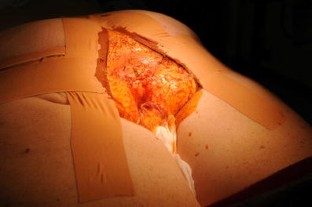

Staying hydrated can make a big difference, too, Dr. If yours doesn’t, consider seeking out a specialist, such as a gastroenterologist or colorectal surgeon, who might also order an endoscopic exam such as a colonoscopy to properly diagnose the problem, Dr. Doctors should conduct a rectal exam with their finger to rule out other issues, she said. Symptoms such as rectal bleeding and pain can also be caused by other problems, including anal fissures (tears in the anus), anal fistulas (infected tunnels between the anus and the skin) and rectal cancer. Karen Zaghiyan, a colorectal surgeon at Cedars-Sinai Medical Center in Los Angeles. Cima said - but usually go away by themselves within a week.Įven if you have hemorrhoid symptoms, you shouldn’t assume that you have hemorrhoids, said Dr. These tend to occur suddenly, and are acutely painful, Dr. People can, more rarely, get external hemorrhoids, which affect blood vessels outside the anus. Most hemorrhoids are called internal hemorrhoids, meaning that they develop inside the anus, even if they sometimes protrude. Rahul Narang, a colorectal surgeon at N.Y.U. Hemorrhoids get inflamed typically because of straining during bowel movements, which puts pressure on them, said Dr. Those symptoms can include itching, burning, bleeding and, sometimes, protrusion of the hemorrhoid outside of the body. It’s only when hemorrhoids become engorged and inflamed that they cause unpleasant symptoms.

Hemorrhoids also help to form a seal within the anus that keeps it closed, kind of like weather stripping on a door, Dr. They’re the reason that you can (usually) tell whether the pressure you’re feeling down below is gas or diarrhea or a normal bowel movement. Actually, these blood vessels that line the anus have a useful job: They help us sense what’s in the rectum, Dr. I was surprised to learn that everyone is, in fact, born with hemorrhoidal tissue. Understand the anatomy of hemorrhoids and look out for the symptoms.


 0 kommentar(er)
0 kommentar(er)
